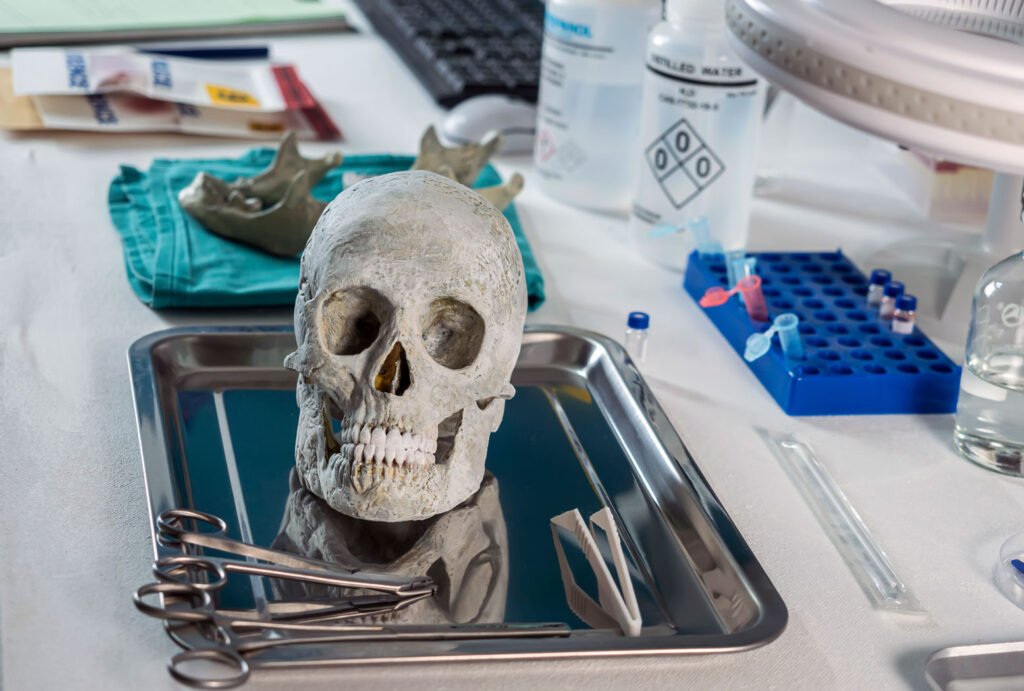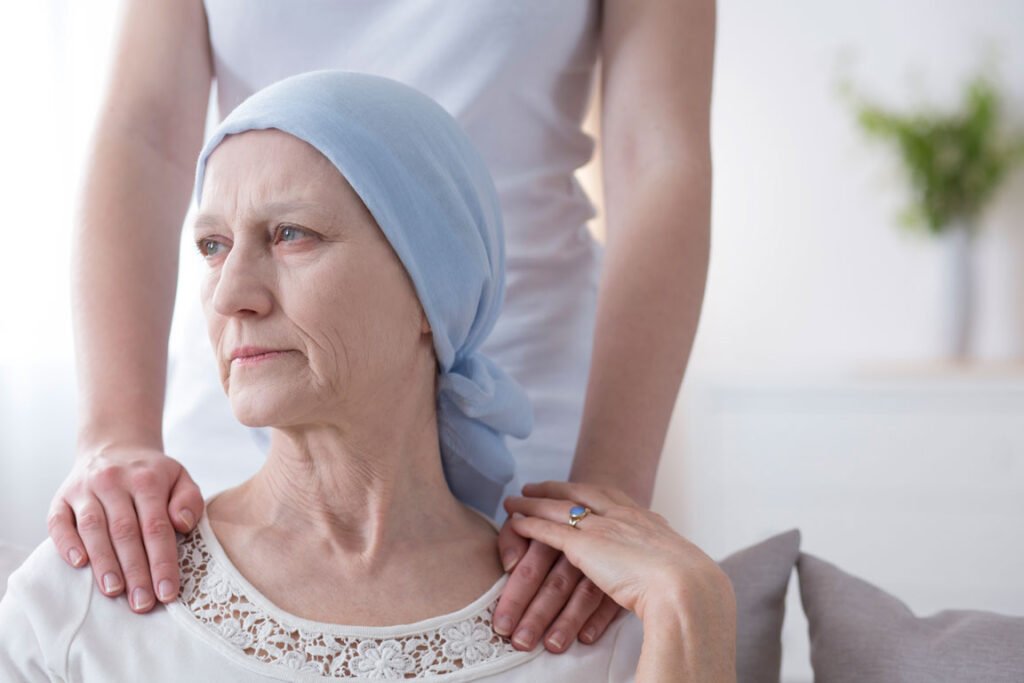An article by Fr. Joseph Appelhanz
Mercy Killing – Not a Work of Mercy
What is Euthanasia? This is a question that many people are asking today. Everyone is of course familiar with animal euthanasia, but what about euthanasia for humans? Can a human kill himself, or allow himself to be killed by another person, in order to be spared pain and suffering? For many people, the answer is yes. There is a great push for this practice to be legalized throughout the world. In several countries, such as the Netherlands, Belgium, and Canada, the practice is legal. Even in the United States, physician-assisted death is legal in eleven states. As time goes on, more and more countries are permitting doctors to assist patients to end their life prematurely. It is highly likely that in the not-so-distant future, euthanasia will be part of everyday life in most of the civilized world. Therefore, the question must be answered, “Is euthanasia permissible?” The fact that a country permits something does not make it morally right. Moral standards are judged by the law of God, not by the laws of man. Man’s laws are just only when they do not contradict the law of God. If euthanasia and physician-assisted suicide are permissible, it must be clearly demonstrated that they are in conformity with the law of God. If they are not in conformity with Divine law, then they can never be permitted.

First of all, what exactly is euthanasia? Euthanasia is defined as the painless killing of a patient suffering from an incurable and painful disease or in an irreversible coma1. Sometimes, there is a distinction made between euthanasia and physician-assisted suicide. In physician-assisted suicide, the patient is given a lethal drug which the patient then administers to himself whenever he or she chooses. In Euthanasia, the doctor himself administers the lethal injection2. However, both of these terms are often joined together under the single term: euthanasia. Other expressions used to describe this practice are “medical aid in dying” and “mercy killing.” The term “mercy killing” deserves special mention. Using the word mercy to describe euthanasia, doctors who advocate this practice argue that it spares the patient’s relatives the sorrow of seeing their loved one in agonizing pain. It should also be noted that we are, for the moment, here speaking about active euthanasia. We are not speaking about passive euthanasia, which is where certain life-sustaining treatments are withheld. This will be covered in its proper place later on.
We are now ready to address that fundamental question: “Are euthanasia and assisted suicide sinful?” The answer is unhesitating and crystal-clear: Yes. They are undoubtedly serious sins against the fifth Commandment of God. They are crimes of murder or suicide with fancy names attached to them. It is never permitted to directly kill an innocent person. Following this same principle, it is mortally sinful for a person to deliberately kill himself by his own authority. It is a violation of Divine Law (Law of God), an injury against the welfare of society, and a violation of Ecclesiastical Law (Law of the Catholic Church) which states that someone who commits suicide may not be buried with the special prayers of the Church3.
Throughout the Bible, there are multiple references that point to this fact. “The innocent and just man thou shalt not put to death.”4 “The innocent and just thou shalt not kill.”5 This is exactly what euthanasia does. It is the killing of an innocent life, by either the doctor or the patient himself. Whenever suicide is mentioned in Scripture, such as in the case of Judas Iscariot or King Saul, it is always referred to as an evil deed.
Following the teachings of her Divine Master, the Catholic Church has always condemned euthanasia as murder. In recent times, His Holiness Pope Pius XII spoke about this exact topic on several occasions. In 1940, the Sacred Congregation of the Holy Office was asked the question:
“Whether it is licit, upon order from the public authority, to kill directly persons who, although they have committed no crime which merits death, are nevertheless, owing to psychic or physical defects, unable to be of any use to the nation, and are judged rather to be a burden to it and to be an obstacle to its vigor and strength?”
On December 1, 1940, the Pope approved the reply of the Holy Office and personally ordered it to be published. The reply ran as follows:
“In the negative, since this is against the natural law and divine positive law.”
Nearly three years later, Pope Pius XII referred to this topic in his great Encyclical Mystici Corporis Christi.
“If the faithful strive to live in a spirit of lively faith, they will not only pay due honor and reverence to the more exalted members of this Mystical Body, especially those who according to Christ’s mandate will have to render an account of our souls, but they will take to their hearts those members who are the object of Our Savior’s special love: the weak, the mean, the wounded, and the sick who are in need of material or spiritual assistance; children whose innocence is so easily exposed to danger in these days, and whose young hearts can be moulded as wax, and finally the poor, in helping whom we recognize, as it were, through His supreme mercy, the very person of Jesus Christ.
For the Apostle with good reason admonishes us “Much more those that seem to be the more feeble members of the Body are more necessary, and such as we think to be the less honorable members of the Body, about these we put more abundant honor.” Conscious of the obligations of Our High Office We deem it necessary to reiterate this grave statement today, when to Our profound grief We see at times the deformed, the insane, and those suffering from hereditary disease deprived of their lives, as though they were a useless burden to society; and this procedure is hailed by some as a manifestation of human progress, and as something that is entirely in accordance with the common good. Yet who that is possessed of sound judgement does not recognize that this not only violates the natural and divine law written in the heart of every man, but that it outrages the noblest instincts of humanity? The blood of these unfortunate victims who are all the dearer to our Redeemer because they are deserving of greater dignity ‘cries to God from the earth.’”
Gerald Kelly SJ, Medico-Moral Problems p.117
From these passages, it is clear that euthanasia is condemned by the Catholic Church. The Pope also touches upon another aspect of euthanasia: the forceful removal from society of anyone who would be considered as “useless” to society. Rendered unable to assist in the building up of the country, the weak and sick were massacred by evil societies such as the Nazis or the Soviet Union. Euthanasia would serve as an effective tool to remove unwanted men from pagan society while being disguised as an act of charity.
These evils are not only recognized by Catholics, but even by many eminent doctors and surgeons. A few examples will help to illustrate this point. In the 1998 annual medical report for the state of Oregon (which has legalized assisted suicide), it is stated:

“For some of the physicians, the process of participating in physician-assisted suicide exacted a large emotional toll, as reflected by such comments as, ‘It was an excruciating thing to do…it made me rethink life’s priorities.’ ‘This was really hard on me, especially being there when he took the pills,’ and ‘This had a tremendous emotional impact.’”
Ronald W. Pies, How does assisting with suicide affect physicians?
https://theconversation.com/how-does-assisting-with-suicide-affect-physicians-87570.
January 7, 2018
Signed in Madrid, Spain, on October 6, 2020, the seventy-four-page report of the Spanish Bioethics Committee offers a recent assessment of this topic.
“Euthanasia and assisted suicide are not signs of progress but rather a regression of civilization, in the context in which the value of human life is already often conditioned by criteria of social utility, economic interest, family responsibilities… the legislation of early death would add a new set of problems.”
Government Committee: Spain’s euthanasia bill tantamount to murder,
https://cruxnow.com/church-in-europe/2020/10government-committee-spains-euthanasia-bill-tantamount-to-murder/
October 16, 2020

These doctors have recognized what the Church has always known: these evils naturally lead to a lack of respect for the life of the individual person. The lives of certain people are devalued. It can easily lead to a noticeable decline in the level of care given to the terminally ill. Further, euthanasia has become a great temptation for the family of the patient, as it is a much cheaper option10. Oregon’s medical report clearly demonstrates that many doctors who performed physician-assisted suicide were experiencing feelings of guilt. Guilt does not arise from performing an act of charity. It only arises when a person knows or thinks that he is doing something wrong. The Hippocratic Oath itself condemns this practice:
“I will neither give a deadly drug to anybody if asked for it, nor will I make a suggestion to this effect.”
Hippocratic Oath, found in: Ronald W. Pies, How does assisting with suicide affect physicians?,
https://theconversation.com/how-does-assisting-with-suicide-affect-physicians-87570
January 7, 2018
Therefore, doctors who perform euthanasia or assisted suicide are going contrary to the oath that they took as medical professionals. Several countries have changed the wording of the Hippocratic Oath; they consider the ancient text outdated and want a new version that fits with their idea of “progress.”
If active euthanasia is always to be condemned, then what about passive euthanasia? Must a person always utilize every possible procedure to prolong his life? In this regard, we must understand the difference between ordinary and extraordinary means of preserving life. The ordinary means of preserving life can never be withheld. These would include things such as food, water, oxygen, and all medications, operations and treatments which offer a reasonable hope of benefitting the person. Ordinary means of preserving life encompass all procedures which can be obtained and used without the patient incurring excessive pain, expense, or other inconvenience. Contrasting with them are the extraordinary means of preserving life. All medications, operations, and treatments that are extremely painful, expensive, or inconvenient are included in this category. The principle is that a person may use these extraordinary means of preserving life but does not have any obligation to use them12. A prime example would be that of a person who can only be saved by a certain operation which is both highly dangerous and has only a small chance of working. Obviously, a person would not have to incur such a great expense for an operation that has as high of a chance of failing as it does of succeeding. Lastly, it should be noted that procedures that were once considered extraordinary means have now become ordinary means due to the advances of medical science.

We are now left with only one question: “Why are increasing numbers of people choosing euthanasia?” It is interesting to note that data from the Washington and Oregon PAS programs indicates that the majority of patients who request physician-assisted suicide do not do so due to the pain. Most are not even actively suffering at the time! They do so out of fear. They fear losing their dignity and control over their own lives. The primary reason that this practice is on the rise throughout the world is due to a single misconception: that suffering has no value. Society looks upon suffering as the greatest of all evils. On the contrary, suffering can be beneficial to us if we offer it up to Almighty God. By offering up our daily pains and sufferings, we can gain many merits for Heaven, our true home, a place free from all pain and sorrow. On this earth, no one can ever achieve perfect happiness. The joys and pleasures of this world can never fill that void in our hearts. Only Almighty God can satisfy that ceaseless yearning for peace and joy. This is not our true home. The earth is our place of trial. Trials are sent to us by God in order to give us the opportunity to prove to Him that we truly love Him. If we lived in a world devoid of pain, we would have no reason to turn to God. We would be content without Him. Sufferings which are offered up to God allow us to resemble Jesus Christ, who suffered and died for us. Further, suffering allows others to practice true Christian charity towards the sufferers. We are given numerous opportunities to practice the seven corporal works of mercy. These works of mercy include: “To give food to the hungry”, “To give drink to the thirsty”, and “To visit the sick.”14 They do not include: “To kill the sick.”
Euthanasia and physician-assisted suicide are evil. They take away the precious gift of life. The sick are deprived of many opportunities to gain merit for Heaven and to wash away the temporal punishment attached to past sins. Worse still, many are deprived of the time they need to repent of their iniquities. This is not an act of mercy; this is a crime. Euthanasia walks hand-in-hand with similar evils such as abortion. They are all intended to disguise mass-murder under a pretext of love and compassion. We must do all that we can to combat these evils by prayer, penance, and good example. “Mercy killing” is a misnomer. It should be renamed “Mercilessly killing.”
Bibliography
Arguments against Euthanasia, vivredignite.org, December 2, 2016
Baltimore Catechism #3, Front Royal, VA: Seton Press, 2007
Government Committee: Spain’s euthanasia bill tantamount to murder, https://cruxnow.com/church-in-europe/2020/10government-committee-spains-euthanasia-bill-tantamount-to-murder/, October 16, 2020
Kelly, Gerard, SJ, Medico-Moral Problems, St. Louis, MO: The Catholic Hospital Association, 1959
Legg, Timothy, P.H.D., What are euthanasia and assisted suicide, https://www.medicalnewstoday.com/articles/182951, December 17, 2018
Oxford Languages, languages.oup.com
Pies, Ronald, How does assisting with suicide affect physicians?, https://theconversation.com/how-does-assisting-with-suicide-affect-physicians-87570, January 7, 2018
Prummer, Dominic, OP, Handbook of Moral Theology, Ft. Collins, CO: Roman Catholic Books, 1957
The Holy Bible – Douay-Rheims Version, London: Baronius Press, 2010

